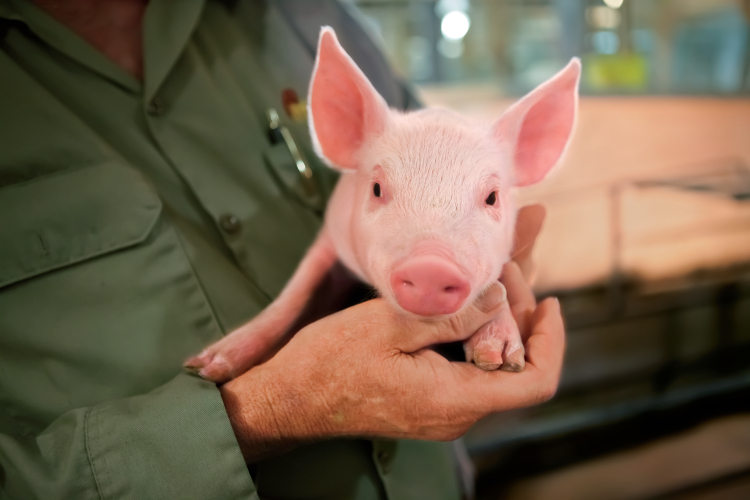Home > Oklahoma > Oklahoma Crops & Livestock > Safety First for Oklahoma Pork Producers
Safety First for Oklahoma Pork Producers

Oklahoma’s pork producers stepped up farm biosecurity – measures preventing animal health threats – when porcine epidemic diarrhea (PED) virus reached the U.S. in 2013. The PED virus, with no threat to human health, can kill every baby piglet on a farm.
“There’s some misconception among the public that we close our farms because we don’t want people to see what’s going on. That couldn’t be further from the truth,” says Roy Lee Lindsey, executive director of the Oklahoma Pork Council.
Visitors to swine farms must change clothes and footwear. Vehicles that have been on sites with other pigs have limited access.
“We limit visitors to the farms to protect animal health,” Lindsey says. Poultry farms have similar restrictions, as diseases quickly spread among birds in barns. Dairy farms guard against diseases like mastitis, which impact cow health and milk quality.
Farm employees are also monitored. Employees at larger swine farms shower into work every day, dressing in clothes that never leave the farm. “That’s as good an example as any of how seriously we take biosecurity,” Lindsey says.
Viruses, like PED, travel on clothing, equipment and even humans. As PED spread across the country, Oklahoma farms reevaluated how animals, people and equipment move. They restricted exposure to places where animals from many farms might mingle, like processing plants.
“Trucks from processing plants can’t go back to farms without disinfecting,” Lindsey says.
Such biosecurity comes at a cost; expensive “trailer baker” buildings subject livestock trailers to heat treatment – once inside, a washed trailer can be baked at 180 degrees Fahrenheit for about an hour, killing any remaining bacteria.
Farms have plans to make sure disease outbreaks do not impact soil and water quality. “Almost every commercial farm has a license from the state and has a mortality disposal plan reviewed by the state department of agriculture,” Lindsey says.
It all helps Oklahoma farmers raise the healthiest animals possible – keeping livestock and poultry secure while providing a safe supply of meat, milk and eggs.



